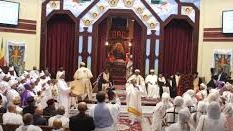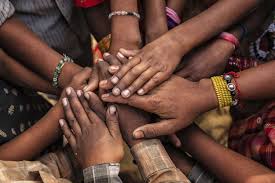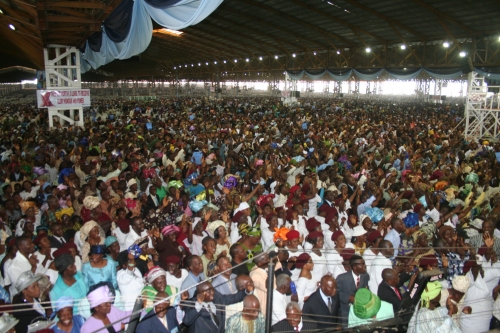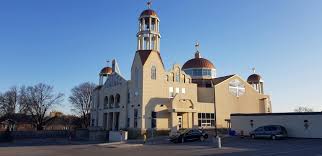How Religion Keeps Communities Connected Abroad

Faith, Family, and Diaspora

A Sunday Morning in London
It is a chilly Sunday morning in South London, but inside a small brick church on Peckham High Street, warmth fills the air. Drums beat in rhythm, voices rise in Yoruba hymns, and children in colorful Ankara outfits sway beside their parents. This is notLagos. It is The Redeemed Christian Church of God (RCCG), Jesus House London, one of hundreds of African churches that have sprung up across the UK, the US, and Europe.
For the hundreds of thousands of Africans living abroad, churches, mosques, and temples have become home away from home, spaces of worship that are also centers of cultural identity, emotional refuge, and social support. Migration has always involved more than physical movement. It is a transfer of culture, memory, and belief. For many diaspora families, religion becomes a vessel for identity, a way to carry their homeland with them.
Across cities like Houston, Toronto, Johannesburg, and Berlin, religious institutions have evolved beyond worship. They serve as community anchors helping newcomers settle, find housing, jobs, and even legal guidance. African churches in particular, such as RCCG, Winners Chapel, and Christ Embassy, now have international headquarters that rival megachurches in their home countries. They organize marriage counseling, youth mentorship, charity drives, and even immigration support.
Mosques and Islamic centers in the diaspora play a similar role. In places like New York and London, African and Middle Eastern mosques run after-school programs, halal food banks, and language classes for second-generation children learning Arabic, Yoruba, or Hausa. Faith institutions have quietly filled the social and emotional gaps that governments often overlook.
Passing Culture Through the Pews
One of the biggest challenges diaspora parents face is preserving cultural identity across generations. Children born abroad often find themselves balancing two worlds, one at home and another at school. Faith communities bridge that gap. Through Sunday schools, Quranic classes, and cultural festivals, young people learn the languages, stories, and values that shape their heritage. A Kenyan mother in Toronto told BBC Africa that her church “teaches my kids to greet elders in Swahili and dance to traditional music, things they might never learn otherwise.” In these ways, religion acts as a living archive of culture, one that grows with each new generation.
Faith in the Digital Diaspora
The pandemic accelerated something remarkable: the rise of online worship.
Diaspora Connect
Stay Connected to Home
From Lagos to London, Accra to Atlanta - We Cover It All.
Now, believers can join services across continents streaming live sermons from Lagos, Nairobi, or Accra while living in London or Chicago. On YouTube, platforms like Dunamis TV and RCCG Live attract millions of diaspora viewers weekly. WhatsApp prayer chains and Instagram devotionals have made faith a 24/7, borderless experience. Technology has allowed diaspora communities to stay spiritually and emotionally connected, even when thousands of miles apart.
Faith as Social and Emotional Capital
Beyond worship, religion also provides something equally vital - support.
For many immigrants, life abroad is isolating and often overwhelming. Churches and mosques serve as informal welfare systems, providing job opportunities, financial aid, and emotional counseling. During the COVID-19 lockdowns, for instance, many African churches in Europe distributed food packages, paid rent for struggling members, and offered virtual therapy sessions. These faith-based networks not only sustain individuals but also nurture resilience, a collective strength rooted in shared belief.

Case Studies: Global Faith in Action
The Redeemed Christian Church of God (RCCG): Now in over 190 countries, with strong presences in London, New York, and Amsterdam, RCCG serves as both a spiritual home and a cultural hub for Nigerians abroad.
The Ethiopian Orthodox Church in Canada: Preserves ancient Amharic hymns and fasting traditions, giving second-generation Ethiopians a sense of rooted identity.
Islamic Center of New York: Home to thousands of West African Muslims, offering community support and Quranic education programs.
Each of these institutions tells a shared story of faith that travels, adapts, and endures.

Why Faith Still Matters in the Diaspora
For the diaspora, faith is more than belief, it is belonging. It is the link between generations, the comfort of a familiar song, the strength to keep going in foreign lands. In a world where migration often means loss of culture, language, and closeness, religion stands as one of the few things that keeps the diaspora connected, grounded, and hopeful.
As the saying goes in many African communities“No matter how far the river flows, it never forgets its source.”
You may also like...
Bundesliga's New Nigerian Star Shines: Ogundu's Explosive Augsburg Debut!

Nigerian players experienced a weekend of mixed results in the German Bundesliga's 23rd match day. Uchenna Ogundu enjoye...
Capello Unleashes Juventus' Secret Weapon Against Osimhen in UCL Showdown!

Juventus faces an uphill battle against Galatasaray in the UEFA Champions League Round of 16 second leg, needing to over...
Berlinale Shocker: 'Yellow Letters' Takes Golden Bear, 'AnyMart' Director Debuts!

The Berlin Film Festival honored
Shocking Trend: Sudan's 'Lion Cubs' – Child Soldiers Going Viral on TikTok

A joint investigation reveals that child soldiers, dubbed 'lion cubs,' have become viral sensations on TikTok and other ...
Gregory Maqoma's 'Genesis': A Powerful Artistic Call for Healing in South Africa

Gregory Maqoma's new dance-opera, "Genesis: The Beginning and End of Time," has premiered in Cape Town, offering a capti...
Massive Rivian 2026.03 Update Boosts R1 Performance and Utility!

Rivian's latest software update, 2026.03, brings substantial enhancements to its R1S SUV and R1T pickup, broadening perf...
Bitcoin's Dire 29% Drop: VanEck Signals Seller Exhaustion Amid Market Carnage!

Bitcoin has suffered a sharp 29% price drop, but a VanEck report suggests seller exhaustion and a potential market botto...
Crypto Titans Shake-Up: Ripple & Deutsche Bank Partner, XRP Dips, CZ's UAE Bitcoin Mining Role Revealed!

Deutsche Bank is set to adopt Ripple's technology for faster, cheaper cross-border payments, marking a significant insti...
